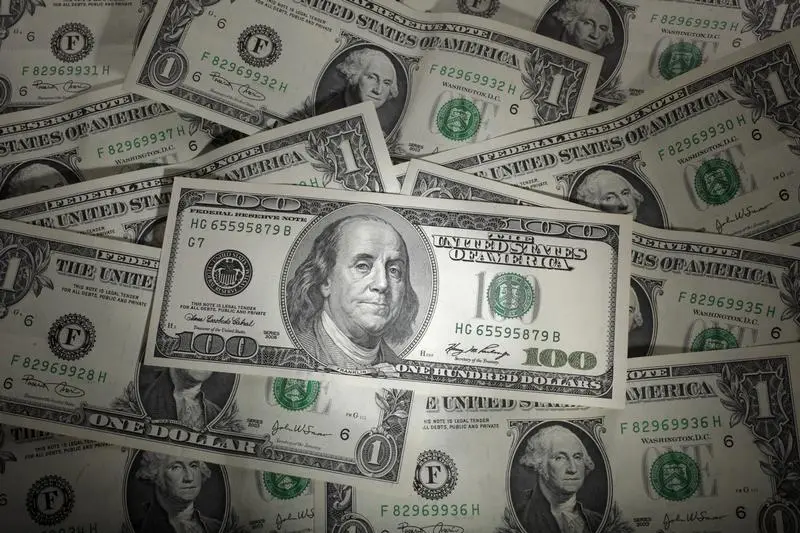PHOTO
SINGAPORE: Currency markets were lulled by holidays in Japan and the United States on Thursday, leaving the U.S. dollar revelling in its gains after data that cast doubts over market projections for peak Fed rates. With markets shut in Japan and the United States for the Thanksgiving holiday, currencies barely moved and cash U.S. Treasuries weren't traded in Asia.
The dollar index rose overnight, bouncing from a 2-1/2 month low, after economic data showed the number of Americans filing new claims for unemployment benefits fell more than expected last week.
At the same time, orders for long-lasting U.S. manufactured goods fell more than expected in October, signalling an economy cooling considerably after hot third-quarter growth. In another worrying indicator for the Federal Reserve, a survey from the University of Michigan showed consumers this month anticipate higher inflation both in the near and long term, particularly inflation over the next five years.
"The dollar has partially rebounded after recent weakness...markets are reminded from the University of Michigan survey that inflation expectations for the next 1 and 5 years stay sticky, and that rates could stay higher for longer," said Jeff Ng, head of Asia macro strategy at Sumitomo Mitsui Banking Corporation.
The dollar's rebound comes after a three-week long spell of weakness driven by evidence of a slowing economy and disinflation, leading markets to price out any additional Fed rate hikes.
U.S. Treasuries had rallied too, with 10-year Treasury yields down nearly half a percentage point this month.
Markets have dialled back expectations of Fed rate cuts in 2024, with futures now showing a 27% chance that the Fed cuts its target rate at the March 2024 policy meeting, a likelihood that increases to 40% when policymakers meet in May, according to CME Group's FedWatch tool.
The weakness in the dollar has buoyed the yen, along with expectations the Bank of Japan may shift away from its ultra-loose monetary policy next year. After pulling back from the brink of 152 per dollar at the start of last week, the yen hit a two-month high of 147.155 on Tuesday. It was last traded at 149.33.
The dollar index was just 0.03% lower at 103.84, with the euro unchanged at $1.0887. The Australian dollar was flat too at $0.654.
The European Central Bank (ECB) releases minutes of its October policy meeting later in the day.
In recent days, policymaker Mario Centeno has said he expected macroeconomic conditions would lead to a reversal in the bank's recent cycle of rate hikes in the near future.
Governing Council member Joachim Nagel said rates in the euro zone are close to their peak in the current cycle or may have already reached it.
The forward-looking flash November purchasing manager indexes (PMIs) are also due out globally on Thursday and should help investors assess recession risks and how quickly rate cuts will begin.
The euro zone PMI is already below the 50 number, suggesting economic activity is contracting. It is the same in Britain, while the U.S. Oct manufacturing PMI contracted sharply.
Sterling fell on Wednesday and UK's FTSE 100 fell for the third straight session after UK finance minister Jeremy Hunt unveiled a series of tax cuts and other measures to boost growth in his autumn budget, but forecast a far more sluggish economic outlook than previously expected.
In cryptocurrency world, Binance chief Changpeng Zhao has stepped down and pleaded guilty to breaking criminal U.S. anti-money laundering laws as part of a $4 billion settlement resolving a years-long investigation into the world's largest crypto exchange.
Bitcoin rose nearly 5% on Wednesday and is last at $37,450.
(Reporting by Vidya Ranganathan; Editing by Lincoln Feast.)
Reuters





















